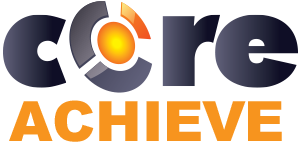Strategies for Swift Training Progress
October, 05 2023
Other posts:
Enhancing Team Dynamics for Effective Group Decision-Making with LMS Integration
Organizations increasingly rely on collaborative efforts to solve complex problems, innovate, and adapt to change, but how do we ensure that collaboration is happening.
Maximizing Small Business Potential with Training Technology
Training technologies can push small businesses ahead of their competitors, but what are the factors that go into choosing the right technology?
Unlocking Employee Potential: The Transformative Benefits of an Interactive Learning Management System (LMS)
Interactive training allows for unlocking employee potential, but how is it done?
Building a Robust Sales Pipeline with Training
Every organization wants a streamlined sales pipeline, but building one requires a series of interlocking activities with one of the most important being training.
Strategies for Adapting In-Person Training to Online Platforms
Online training is one of the most flexible ways of delivering training across organizations, but how do you even begin to adapt in-person training into online?
Almost all organizations wish their training was faster and more efficient. An LMS definitely helps, but their are strategies that could make swift training progress.
Every organization wants their training to be as fast and effective as possible, which is part of the reason why Learning Management Systems (LMS), like CoreAchieve, have become so popular. They offer a training platform with tools that address the pitfalls of traditional learning. However, there is more that organizations can do to ensure swift training progress.
Microlearning Modules
The first of these strategies is Microlearning, or delivering content in small, focused segments. LMS platforms allow organizations to create bite-sized modules that can be accessed anytime, anywhere. Users can tackle these short bursts of information during breaks, commutes, or spare moments, maximizing their training efficiency.
Microlearning has also been shown to be more effective in the long-term, as cramming eight hours’ worth of information inevitably leads to lost information.
Gamification for Motivation
Gamification elements within an LMS, such as badges and rewards, can create a sense of achievement and competition that drives users to complete training as quickly (and correctly) as possible. Beyond faster training, gamification also serves to make training fun.
Responsive Design for Accessibility
For fast training, the LMS platform needs to be responsive as it allows users to access training materials on various devices, ensuring they can train at their convenience. This flexibility eliminates barriers and accelerates progress.
Social Training and Collaboration
Training doesn’t have to always be a solo endeavor. Collaborative features within an LMS, such as discussion forums or group projects, enable users to interact with peers and experts. This exchange of ideas and experiences can lead to quicker problem-solving and knowledge acquisition.
Continuous Assessment and Feedback
Regular assessment and feedback mechanisms provided by an LMS enable trainees to gauge their progress accurately while leaving room for adjustments with their training. This reactiveness prevents users from spending an excessive amount of time on training that isn’t effective or working.
Data-Driven Insights
An LMS offers valuable insights into user progress and engagement through analytics. Organizations can use this data to identify bottlenecks and areas of concern, allowing them to adjust training strategies in real time to ensure timing progress.
Clear Training Objectives
Setting clear, achievable training objectives is essential for achieving progress (not even just swift). An LMS can help organizations define and communicate these objectives effectively. When users understand what's expected, they are more likely to stay on track and reach their goals faster.
Frequent Updates and Content Refreshing
In rapidly evolving industries, outdated training content can be a significant hurdle. An LMS makes it easier to update materials and keep them current. Regularly refreshing content ensures that learners are always acquiring relevant skills and knowledge.
Time Management Training
Effective time management is a skill that can expedite progress in all areas of training. Incorporating time management modules into an LMS can teach users how to optimize their study schedules, allocate time efficiently, and meet deadlines.
An LMS can empower individuals and organizations to overcome training challenges effectively and achieve their goals faster. By implementing strategies such as microlearning, gamification, and data-driven insights, users can cut through obstacles and navigate their training journeys with efficiency. With the right LMS and these strategies in place, swift progress in training becomes an achievable reality.
Get started with CoreAchieve today for free.
Photo by Brad Neathery on Unsplash

Leave comment: